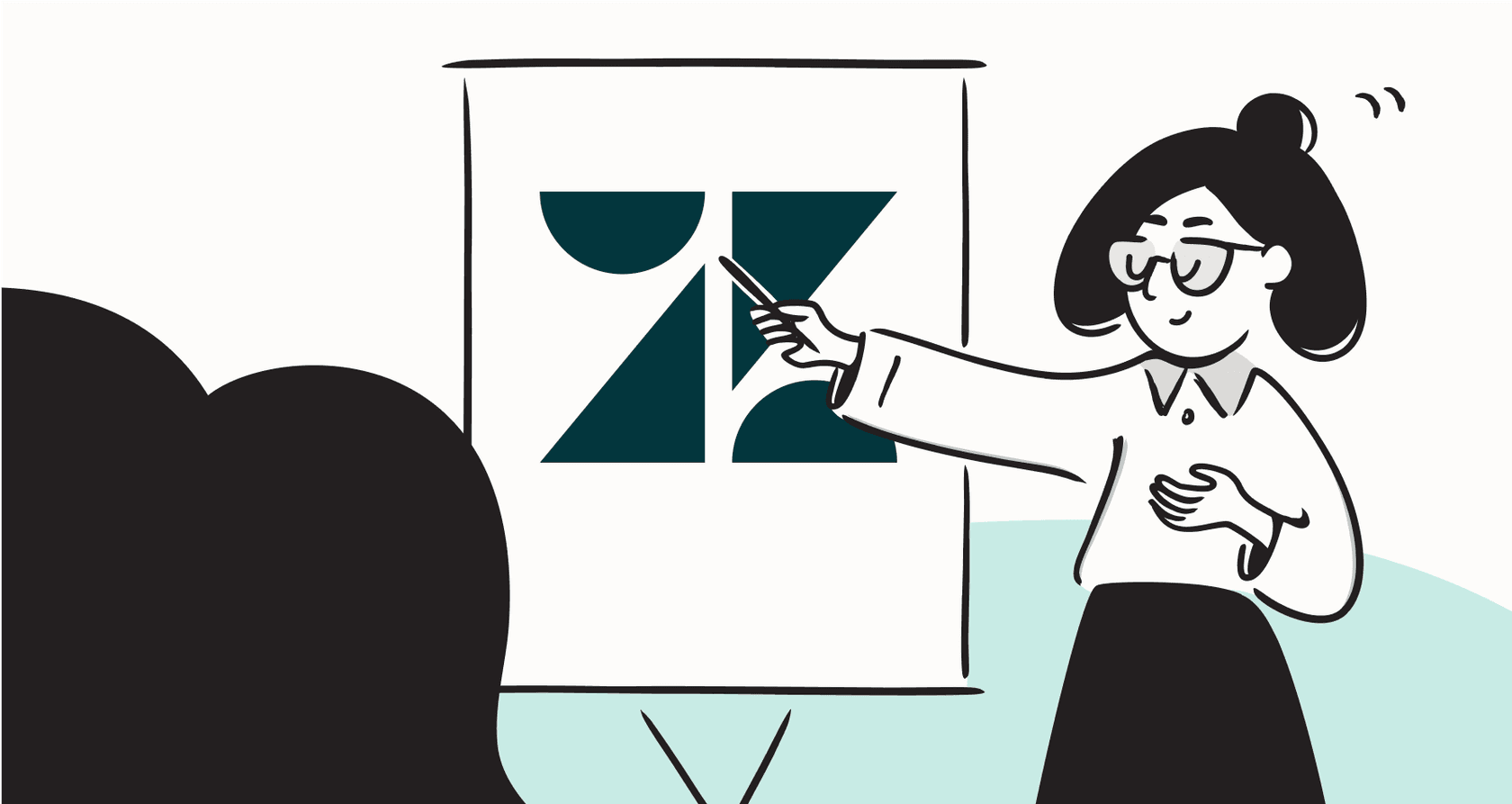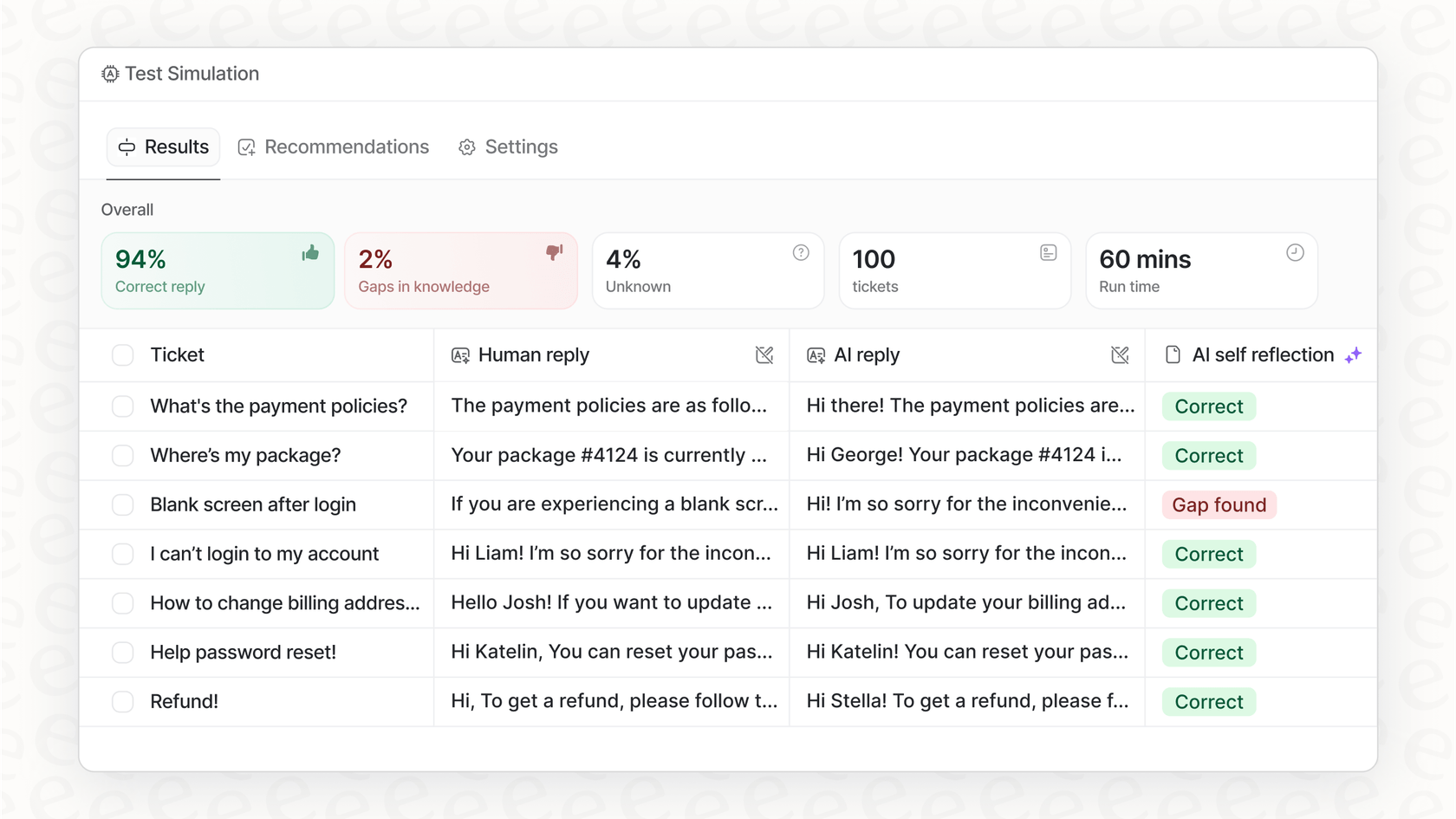A complete guide to the Zendesk AI agent builder in 2026

Stevia Putri

Stanley Nicholas
Last edited January 12, 2026
Expert Verified

Let's be honest, the buzz around AI in customer support is everywhere. It's shifted from a "nice-to-have" to the new standard, and everyone's looking for the best way to implement it. Zendesk, as the industry leader in the help desk space, has established a strong presence with its own AI tools that automate conversations and give your team significant breathing room.
This is a straightforward, comprehensive look at the Zendesk AI agent builder. We’re going to dig into what it can do, talk about the implementation considerations for your team, and make sense of its pricing. While Zendesk’s native tools are a powerful foundation, you'll also see how bringing in a specialized platform can provide additional flexibility for specific use cases.
What is the Zendesk AI agent builder?
In a nutshell, the Zendesk AI agent builder is their built-in tool for creating AI-powered bots that live natively inside the Zendesk environment. The main idea is to have it automatically answer customer questions by pulling from your company's curated knowledge base and following the professional workflows you design.
You might hear Zendesk and its partner OpenAI talk about "agentic AI". That’s an exciting way of saying the bot is capable of more than just following a rigid script. The goal is for it to understand what a customer is actually asking, think through the problem, and resolve it efficiently.
It’s designed to work across multiple channels like messaging, email, and web forms, all with the goal of helping your team manage their ticket volume more effectively. It’s a robust solution, and like any enterprise-grade tool, it has certain implementation steps to keep in mind.
Key features of the Zendesk AI agent builder
Zendesk has structured its Zendesk AI features into tiered packages, "Essential" and "Advanced," to match different team sizes and needs.
The core of the offering is Generative Replies, which is available on both plans. This allows the AI to create natural, conversational answers based on the articles you have in your official Zendesk Help Center.
Once you move up to the "Advanced" plan, you unlock even more powerful tools. The Natural Language Builder lets you describe a workflow in plain English, and the AI will help sketch out a basic bot to handle it. You also get the Integration Builder, a professional tool that helps your bot connect to other systems to do things like look up order details.
Then there are the flexible add-ons. The Agent Copilot acts as a helper for your human agents, suggesting replies and summarizing ticket threads. To get Intelligent Triage, which automatically sorts and tags incoming tickets to keep your queue organized, you can add the Advanced AI add-on.
Implementation and growth: A realistic look at the Zendesk AI agent builder
Zendesk is designed to be a powerful, scalable platform. For teams who want automation that is truly customized and integrated, there are a few implementation details to consider.
Setup and implementation: Launching your agent
Zendesk provides the tools to launch an AI agent quickly. If you’re looking for a bot that answers questions from your help center, you can get started very fast. For teams that want to build complex agents that solve unique business problems, Zendesk provides a deep set of tools to ensure everything is configured exactly right.
Utilizing advanced tools like the integration builder involves working within the Zendesk admin panel. If you want your bot to pull data from external systems, it helps to have someone familiar with APIs and query languages like JSONata to make the most of the platform's power. This level of control is great for teams that want a highly customized enterprise setup.
For teams looking for a more self-serve, "one-click" experience to complement their setup, a platform like eesel AI is a great option. You can connect it to Zendesk easily and get a bot running alongside your existing workflows without needing custom code.
Customization and knowledge sources: Maximizing your data
The Zendesk AI agent builder is designed to learn from your official Zendesk Help Center, ensuring that all automated answers are based on verified, company-approved information.
Many companies also have valuable information in other places, like Google Docs, Confluence, or Notion. While Zendesk focuses on your primary help center to maintain quality, you can use complementary tools to bring in these other sources.

A tool like eesel AI is built to work within the Zendesk ecosystem to bridge this gap. It connects to over 100 knowledge sources, including wikis and past tickets, helping to extend the reach of your Zendesk setup and provide even more contextual answers.
Testing and deployment: Launching with precision
Launching customer-facing AI is an important step. Zendesk provides a testing environment so you can review how your bot is performing before it interacts with your customers.

To add even more precision to your launch, eesel AI offers a simulation mode. This allows you to test your AI agent against thousands of past tickets to forecast resolution rates. It’s a great way to double-check your knowledge base before going live, providing an extra layer of confidence to your Zendesk deployment.
Understanding Zendesk AI agent builder pricing: How the investment works
Zendesk’s AI pricing structure is designed to be flexible, offering different tiers and usage-based options to suit your company's growth.
Here’s a rundown of the components:
- Suite Plans: You start with a base Zendesk Suite plan. These range from $55 per agent/month for Suite Team up to $169+ per agent/month for Suite Enterprise (billed annually).
- Advanced AI Add-on: To unlock professional features like intelligent triage and custom bot flows, you can add the Advanced AI add-on for $50 per agent/month.
- Automated Resolutions (ARs): Zendesk uses a performance-based model where you pay for each ticket the bot successfully resolves. These are roughly $1.50 to $2.00 per resolution. This ensures that your costs scale directly with the value the AI provides to your team.

If you prefer a different model, eesel AI's pricing provides a predictable alternative with plans based on monthly interactions rather than per-resolution fees. This can make budgeting simpler for some teams while still working perfectly within your Zendesk environment.
A complementary approach: Enhancing your setup with eesel AI
The great thing about the Zendesk ecosystem is its flexibility. You can use eesel AI as an additional intelligence layer that works on top of Zendesk to extend the native builder's capabilities.
Go live quickly with an easy setup
eesel AI connects to your Zendesk account in a single click. You can sign up and launch an AI agent that works alongside your team in a very short amount of time.
Connect all your knowledge for comprehensive answers
eesel AI allows you to connect over 100 different sources, including internal wikis and past ticket history, to your Zendesk setup. This helps your AI understand the full context of your business and provide even more accurate answers.

Customize your workflows with ease
With eesel AI's prompt editor, you can define your AI's personality and give it the power to perform specific tasks. It can help look up order information in Shopify, handle refunds, and escalate tickets to the right human agent with high precision.

Deploy with confidence
The simulation mode and transparent pricing allow you to prove the value of your AI support system without any guesswork.

Should you use the Zendesk AI agent builder?
The Zendesk AI agent builder is a
For teams that need a specific kind of flexibility or want to connect knowledge from many different sources, using a specialized solution that plugs into your existing Zendesk help desk is a smart path. You get to keep the industry-leading Zendesk setup you're used to, while supercharging it with additional AI capabilities.
This video shows how you can build a perfect AI agent to transform your Zendesk in just a few minutes.
Get started with a smarter AI agent for Zendesk today
Your support team deserves tools that empower them. eesel AI integrates with your existing Zendesk account in minutes to deliver fast, accurate, and dependable automation.
Frequently asked questions
The Zendesk AI agent builder is Zendesk's native tool for creating AI-powered bots that automate customer support conversations within the Zendesk environment. Its core function is to answer questions using your knowledge base and follow designed workflows to resolve issues.
Basic FAQ bots can be quick to set up. For advanced automation, the Zendesk AI agent builder offers professional-grade tools that allow for deep integration with external systems. This involves utilizing the admin panel, understanding APIs, and using query languages to create a robust, enterprise-ready support experience.
The Zendesk AI agent builder is optimized to learn from your official Zendesk Help Center articles, ensuring that the information shared is verified and accurate. For teams looking to incorporate knowledge scattered across other documents like Google Docs or historical tickets, there are complementary tools in the Zendesk marketplace that can enhance this contextual understanding.
In addition to base plans, the Zendesk AI agent builder pricing includes a performance-based model called "Automated Resolutions." You are charged a per-resolution fee for each ticket successfully closed by the bot, which allows the platform's cost to scale directly with the value and time-savings it provides.
The Zendesk AI agent builder provides a reliable testing environment where you can review bot responses before going live. This ensures you have a solid foundation for how the agent will interact with customers in a real-world environment.
The Zendesk AI agent builder offers a powerful Integration Builder for connecting to other systems. This feature is typically available on higher-tier plans and is designed for teams who need professional-grade connectivity using APIs and query languages like JSONata.
Share this post

Article by
Stevia Putri
Stevia Putri is a marketing generalist at eesel AI, where she helps turn powerful AI tools into stories that resonate. She’s driven by curiosity, clarity, and the human side of technology.






